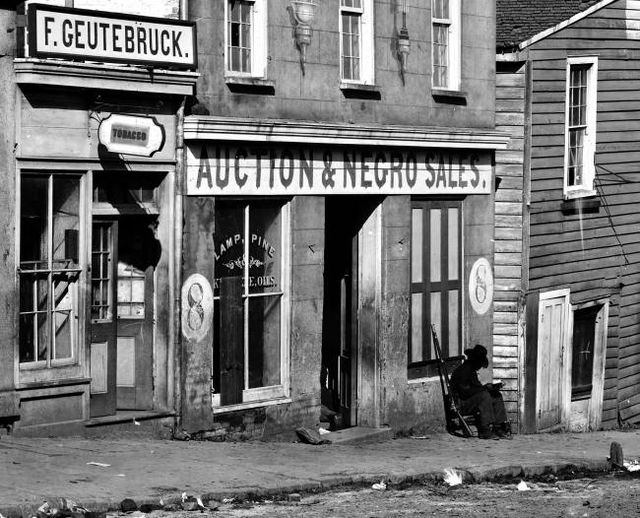The Economist recently ran a gormless (and now withdrawn) review of Edward E. Baptist’s new book about American slavery. The crux of the worst of it was that the author was somehow being unfair to the “good” slave owners. The opening of Baptist’s riposte in the Guardian:
“In 1845, Frederick Douglass, a fugitive from slavery, joined dozens of white passengers on the British ship Cambria in New York harbor. Somewhere out on the Atlantic, the other passengers discovered that the African American activist in their midst had just published a sensational autobiography. They convinced the captain to host a sort of salon, wherein Douglass would tell them his life story. But when the young black man stood up to talk, a group of Southern slaveholders, on their way to Britain for vacation or business or both, confronted him. Every time Douglass said something about what it was like to be enslaved, they shouted him down: Lies! Lies! Slaves were treated well, insisted the slaveholders; after all, they said, the masters remained financially interested in the health of their human ‘property.’
In a review of my book about slavery and capitalism published the other day, the Economist treated it the same way that the tourist enslavers treated the testimony of Frederick Douglass on that slave-era ship long ago. In doing so, the Economist revealed just how many white people remain reluctant to believe black people about the experience of being black.
Apparently, I shouldn’t have focused my historical research on how some people lived off the uncompensated sweat of their ‘valuable property,’ the magazine’s anonymous reviewer wrote: ‘Almost all the blacks in his book are victims, almost all the whites villains.’ Worst of all, this book reviewer went on, I had, by putting the testimony of ‘a few slaves’ at the heart of book about slavery, somehow abandoned ‘objectivity’ for ‘advocacy.'”

